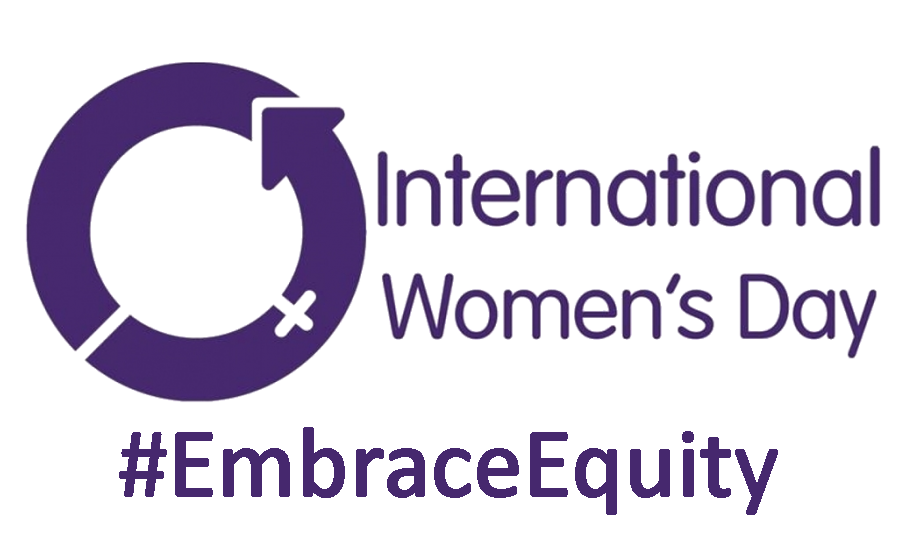Back in 1971, the late Helen Reddy had a smash hit with the song “I Am Woman.” The opening lyrics to that song read, “I am woman, hear me roar in numbers too big to ignore. And I know too much to go back an’ pretend. ‘Cause I’ve heard it all before and I’ve been down there on the floor. And no one’s ever gonna keep me down again.” The song became a feminist anthem and, sadly, was more aspirational than factual. In many places, women continue to struggle to compete on equal footing with men.
Tomorrow, the world celebrates International Women’s Day. It may sound like something dreamed up in the 1970s; however, the day has been celebrated for over a century. Journalist Sarah Pruitt reports, “The first official National Woman’s Day [was] held in New York City on February 28, 1909. (The organizers, members of the Socialist Party of America, wanted it to be on a Sunday so that working women could participate.) Thousands of people showed up to various events uniting the suffragist and socialist causes, whose goals had often been at odds.”[1]
Women in the United States eventually gained the right to vote, but the struggle for gender equality — especially in the workplace — has not ended. Journalists Selena Barrientos and Katarina Avendaño write, “While any day makes for a great opportunity to celebrate the women in your life, International Women’s Day gives you one more reason to do exactly that. International Women’s Day is a global holiday that recognizes women’s incredible achievements, raises awareness and encourages others to advocate for gender equality.”[2] Some of those incredible achievements led to technologies we enjoy today. Enterra Solutions®, like other technology companies, would not exist without mathematics and computers. We can only wonder how much further advanced society and science would be if women had been more welcomed into those fields?
One woman, who by the strength of her character and the power of her intellect, made an early contribution to the field of computing was Ada Lovelace (née Byron). Augusta Ada Byron was born 10 December 1815 to George Gordon Byron (better known as Lord Byron) and his wife Anne Isabella Noel Byron. Wikipedia offers this brief introduction to the great lady. “[Ada] was an English mathematician and writer, chiefly known for her work on Charles Babbage’s proposed mechanical general-purpose computer, the Analytical Engine. She is believed by some to be the first to recognize that the machine had applications beyond pure calculation, and to have published the first algorithm intended to be carried out by such a machine. As a result, she is often regarded as the first to recognize the full potential of computers and as one of the first to be a computer programmer.” On 8 July 1835, Ada married William, 8th Baron King, becoming Lady King. Three years later, her husband was made Earl of Lovelace and Viscount Ockham, which made Ada the Countess of Lovelace. Her brilliance was never in doubt. Unfortunately, she died at the age of 36 on 27 November 1852.
Half a dozen years ago, the film Hidden Figures showcased the fact that women of color have had an even steeper hill to climb in the fields of computing and mathematics. That movie depicted the lives of three brilliant black women, Katherine Goble (played by Taraji P. Henson), Dorothy Vaughan (played by Octavia Spencer), and Mary Jackson (played by Janelle Monáe), who fought prejudice and cultural norms to help get the U.S. space program off the ground. Since their contributions were largely unheralded, they were hidden figures behind NASA’s success.
Another computing pioneer was Grace Hopper. Unless you had a career in the U.S. Navy, you may never have heard of Grace Hopper. Jay Shambaugh and Becca Portman, analysts at the Brookings Institution, write, “Grace Hopper was an extraordinary human being. She was one of the pioneers of computer science, helping to develop some of the first programming languages used, some of which are still used today. She was also extraordinary because she did these things in a military dominated by men and a field that over time became dominated by men.”[3] They continue, “When she graduated from Vassar College in 1928, less than 5 percent of women were college graduates and roughly 40 percent of bachelor’s degrees were granted to women. Even fewer were in STEM fields. This restricted the number of women who could become a Grace Hopper, limiting the number of inventors and inventions that could have spurred growth in the U.S. economy.”
History has too long ignored the contribution of women in all areas of our lives. Shambaugh and Portman were correct when they assert that the limited opportunities women have had undoubtedly stifled advances in mathematics and computing that could have spurred even greater growth in the U.S. economy. The same is true globally. The theme for International Women’s Day 2023 is #EmbraceEquity. The staff at International Women’s Day note, “Equity isn’t just a nice-to-have, it’s a must-have. A focus on gender equity needs to be part of every society’s DNA. And it’s critical to understand the difference between equity and equality. … Equality means each individual or group of people is given the same resources or opportunities. Equity recognizes that each person has different circumstances, and allocates the exact resources and opportunities needed to reach an equal outcome. … The goal of equity is to change systemic and structural barriers that get in the way of people’s ability to thrive.”[4]
The world is facing so many challenges we can’t ignore one of its most important resources: human capital. With women representing half of that capital, ensuring they can contribute fully to our society should be a priority.
Footnotes
[1] Sarah Pruitt, “The Surprising History of International Women’s Day,” History.com, 19 February 2021.
[2] Selena Barrientos and Katarina Avendaño, “28 Incredible and Empowering International Women’s Day Quotes,” Good Housekeeping, 15 February 2022.
[3] Jay Shambaugh and Becca Portman, “How many Grace Hoppers have been lost from the innovation pipeline?” The Brookings Institution, 8 January 2018.
[4] Staff, “International Women’s Day 2023 campaign theme: #EmbraceEquity,” International Women’s Day.





